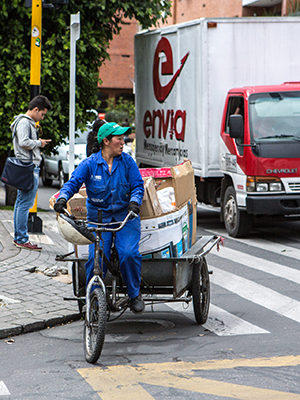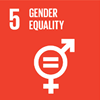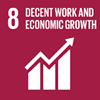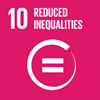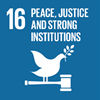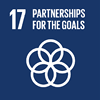Transforming economies, states, and societies
At its core, development is about the well-being of people. But it is also about creating societies which provide fundamental rights and just social political outcomes. Sustainable and inclusive development requires transformative changes across three fundamental areas: in the structures of economies, in the state, and institutions that govern social and market interactions and broader developmental processes, and in society itself. These transformations are central to the achievement of the United Nations’ 2030 Agenda for Sustainable Development and the Sustainable Development Goals (SDGs).
The 2019–23 UNU-WIDER work programme focuses on the interlinked development challenges of transforming economies, states, and societies and maps them against SDGs 5, 8, 10, 16, 17. By mobilizing research evidence for action through the ongoing processes in the UN and its member states, the institute continues to work with stakeholders to strengthen capacities for research, technical, and policy analysis, and facilitate exchange of experiences and knowledge towards bold and collaborative development solutions for countries and regions around the world.
Click on the table below to explore our current work or scroll down to search past projects.
17 active and previous projects
Filter by...
2006-07
Country role models for development successIn the development literature, some countries are cited more often than others as examples of development success. These countries are believed to have policies and institutions that could be transferred, at least in part, to less successful...
2006-07
Southern engines of global growthThe project centers on the inter-linkages between the major developing countries of Brazil, India, China and South Africa and the global economy, with a special emphasis on the implications of China’s growth on smaller economies and the rest of the...
2006-07
Fragility and developmentIn recent years there is a growing concern within the international donor community regarding the plight of a special group of countries labeled as 'Fragile States'. These states, which according to current donor lists currently numbers more than 40...
2006-07
Conference on aid - principles, policies and performanceAid is one of the most challenging development issues facing the international community. There is now a pressing need to evaluate performance to date, and the future for aid in light of recent events such as the post-Monterrey consensus to...
2006-07
Gender and food securityUNU-WIDER’s recent project ‘Hunger and Food Security’ exerted a strong attraction for academia, international organizations (FAO, WFP, and UNCTAD), civil society organizations, and the media. The first project meeting, held in Jaipur in March 2005...
2006-07
Designing Africa's poverty strategies - expanding local capacity to simulate policy optionsIn 2003, UNU-WIDER launched its project on Designing Africa’s Poverty Strategies: Creating the Capacity for Policy Simulation to develop economic modelling capacity in African countries. The project director provided regular training workshops (14...
2006-07
Health inequalities and developmentThe purpose of this project was to investigate issues related to health inequality. Although health is an important indicator of overall wellbeing, it is only recently that research has focused on health inequality. This project brings forth issues...
2002-03
Conference on sharing global prosperityConferences: 6 September 2003 WIDER Conference on Sharing Global Prosperity
2002-03
Reconstruction in conflict and post-conflict societiesReconstruction from conflict is a complex and demanding task, and a major challenge for the UN system as well as the wider donor community. National authorities and their donor partners are faced with multiple priorities - rebuilding infrastructure...
2002-03
Global trends in inequality and povertyThe scale and causes of international income inequality and poverty continue to be much debated. Yet, the quality of the analysis and data underlying this debate still leaves much to be desired. Accordingly, this project will collate poverty data to...
2002-03
Spatial disparities in human developmentMany developing and transition countries have considerable regional variation in average household income, poverty, and health and educational status. National human development indicators can therefore mislead policy-makers when large regional...
2002-03
The sustainability of development financingThe real value of official aid flows fell for much of the 1990s, and private capital flows to low-income countries remain mostly limited. The decline in aid flows may endanger the development process, since they finance much of the development budget...
2002-03
The impact of the WTO agreement on low income countriesWhen the Uruguay Round was being negotiated and it was coming to a close, a number of estimates were made about the impact of the agreement on poor countries. Many assessments indicated that there would be a net loss for them while others came up...
2002-03
Social development indicators - measuring human well-beingSummary measures of human well-being are increasingly used to compare and monitor performance within and across countries. The UNDP's Human Development Index (HDI) is one of a number of measures which have done much to refocus attention on the...
2002-03
Long-term development in the CFA-zone countries of Sub-Saharan AfricaMembers of the CFA-zone enjoy currency convertibility, fiscal and monetary policies which are more prudent than SSA as a whole, and a large amount of financial and technical assistance. These advantages do not appear, however, to have resulted in...
 Join the network
Join the network